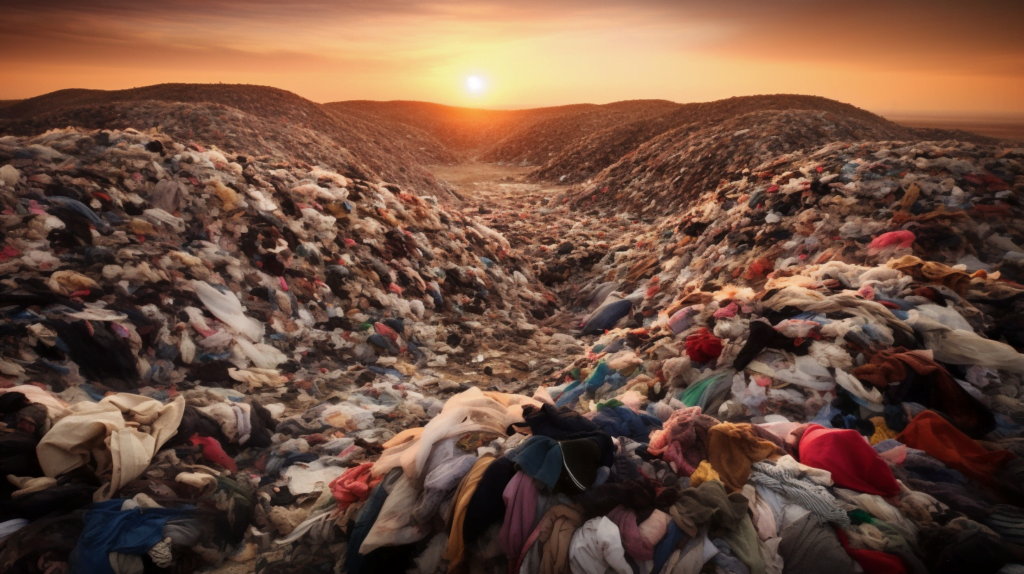
The Benefits of Supporting Independent Fashion Brands
When it comes to building a unique wardrobe that truly reflects your personal style, Supporting Independent Fashion brands is a
By Kargede – A sustainable designer fashion label celebrating the beauty of individuality, originality, and artisanal craft.

The importance of sustainable fashion is often overlooked. As the fashion industry continues to grow, it is also contributing to some of the most pressing environmental and social issues of our time. The production and disposal of clothes is responsible for a significant amount of pollution, carbon emissions, and resource waste. In addition, labour exploitation and human rights violations are rampant in the fashion industry. However, there’s hope. Many remarkable brands are leading the charge towards sustainability and ethical practices through the sustainable fashion movement.
Sustainable fashion is a movement that is gaining momentum around the world. It’s a way of creating clothing that has a positive impact on both people and the planet. It’s about designing clothes that last longer, use fewer resources, and cause less harm to the environment. Sustainable fashion brands focus on using eco-friendly materials and ethical labour practices, ensuring that everyone in the supply chain is treated fairly. They also prioritize reducing waste and emissions, and often incorporate innovative recycling and upcycling techniques. By supporting sustainable fashion, we can help promote a more responsible and equitable fashion industry that looks out for the well-being of our planet and future generations. If you’re interested in understanding the significance of sustainable fashion, here are some key points to ponder.
It’s astonishing to learn that the fashion industry stands as the world’s second-largest polluter, trailing only the oil and gas sector. Clothes manufacturing and disposal result in greenhouse gas emissions, water pollution, and resource depletion. According to the United Nations Environment Programme, fashion accounts for 10% of global carbon emissions and 20% of global wastewater. This data sheds light on the industry’s immense impact. By embracing sustainable fashion, you actively contribute to mitigating its negative effects. For example, organic cotton cultivation requires 91% less water than conventional cotton, while recycled polyester consumes 59% less energy than virgin polyester.

The rise of fast fashion has fostered a throwaway culture, where clothes are worn briefly before being discarded. This trend stems from cheap materials, poor fit, and uninspired designs that quickly fall out of favour. Shockingly, the Ellen MacArthur Foundation reveals that one garbage truck’s worth of clothes is burned or dumped in landfills every second. This statistic evidences a shocking truth about our respect for the limited nature of our planets resources. Sustainable fashion brands, renowned for their quality and craftsmanship, prioritize earth-friendly practices. They ensure that their garments withstand the test of time, both functionally and aesthetically. By choosing sustainable fashion, you opt for superior clothing that offers better comfort, fit, and long-term satisfaction. This mitigates the need to continually purchase now clothing and contribute to the ever expanding piles of waste clothing.
The fast fashion industry is notorious for unethical labour practices and violations of human rights. Garment workers frequently endure low wages, unsafe working conditions, and limited job security. According to the Clean Clothes Campaign, 80% of these workers are women, many of whom earn less than the minimum wage in their respective countries. By supporting sustainable fashion, you can empower brands that promote fair labour practices and provide safe, healthy work environments. For instance, the Fair Trade Certified label guarantees fair wages, safe conditions, and access to healthcare and education for workers.
Sustainable fashion is far more than a passing trend; it is an essential step toward a sustainable and equitable future. By endorsing sustainable fashion, we can reduce our environmental footprint, advocate for fair labour practices, minimize waste, and foster a more equitable economic system. As consumers, we possess the power to drive positive change within the fashion industry.
If you share these values and aim to support sustainable brands and a sustainable future, consider the following key points:
Embrace sustainable fashion and make a positive impact. Together, we can transform the fashion industry for a better, more sustainable future.

When it comes to building a unique wardrobe that truly reflects your personal style, Supporting Independent Fashion brands is a

We all know the saying, “dress how you want to feel,” but how much truth is there to it? Could
Kargede acknowledges the Dharug people, in particular the Bidjigal people, as the Traditional Custodians of the land on which we operate. We pay our respect to Elders past and present, and extend that respect to all Aboriginal and Torres Strait Islander peoples.
We act on this respect by helping fund community-led Aboriginal and Torres Strait Islander literacy programs, working in English and First Languages to build opportunity, voice and self-determination in communities where the education system has fallen short.
Stay up to date with our latest news, receive exclusive deals, and more.
Automatically applied at checkout, enjoy complimentary free shipping and returns on all domestic orders (2 – 3 Business Days)
Original statement pieces, made Ethically & Sustainabily